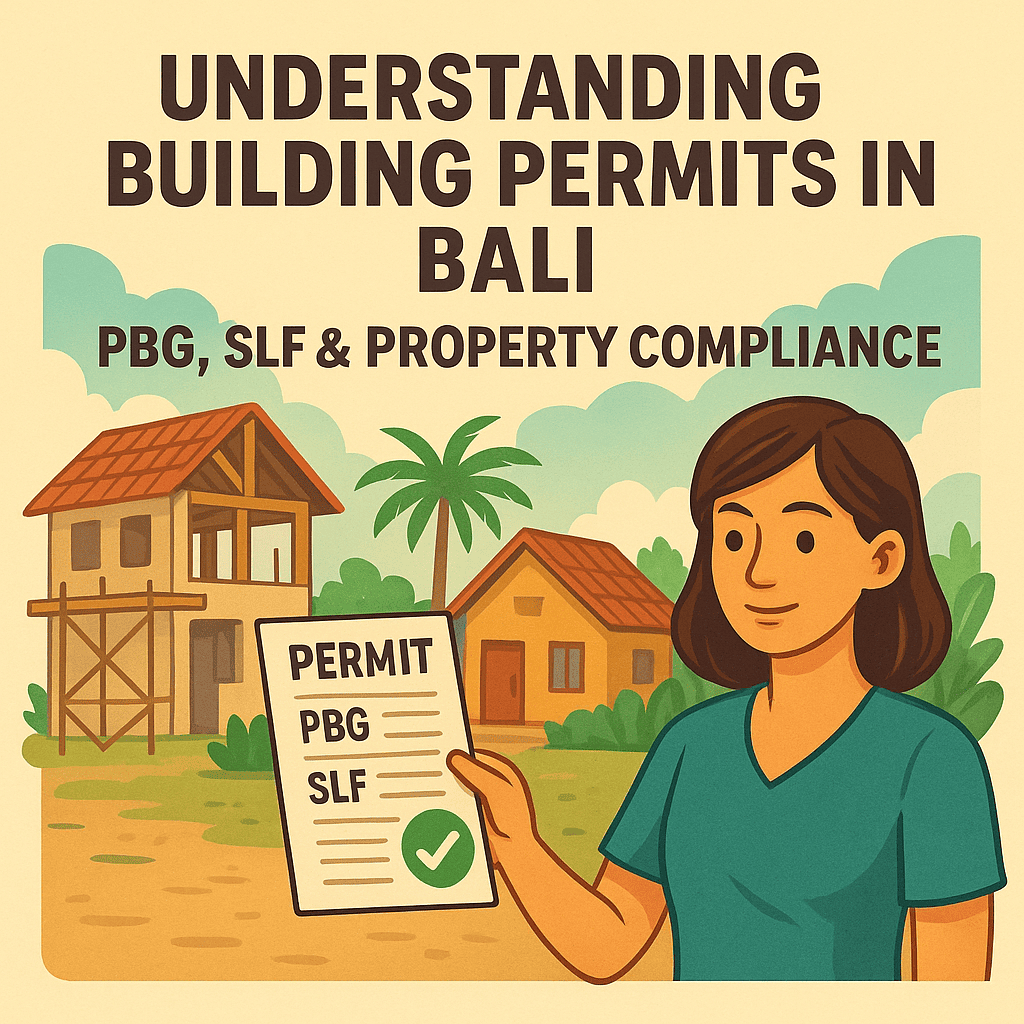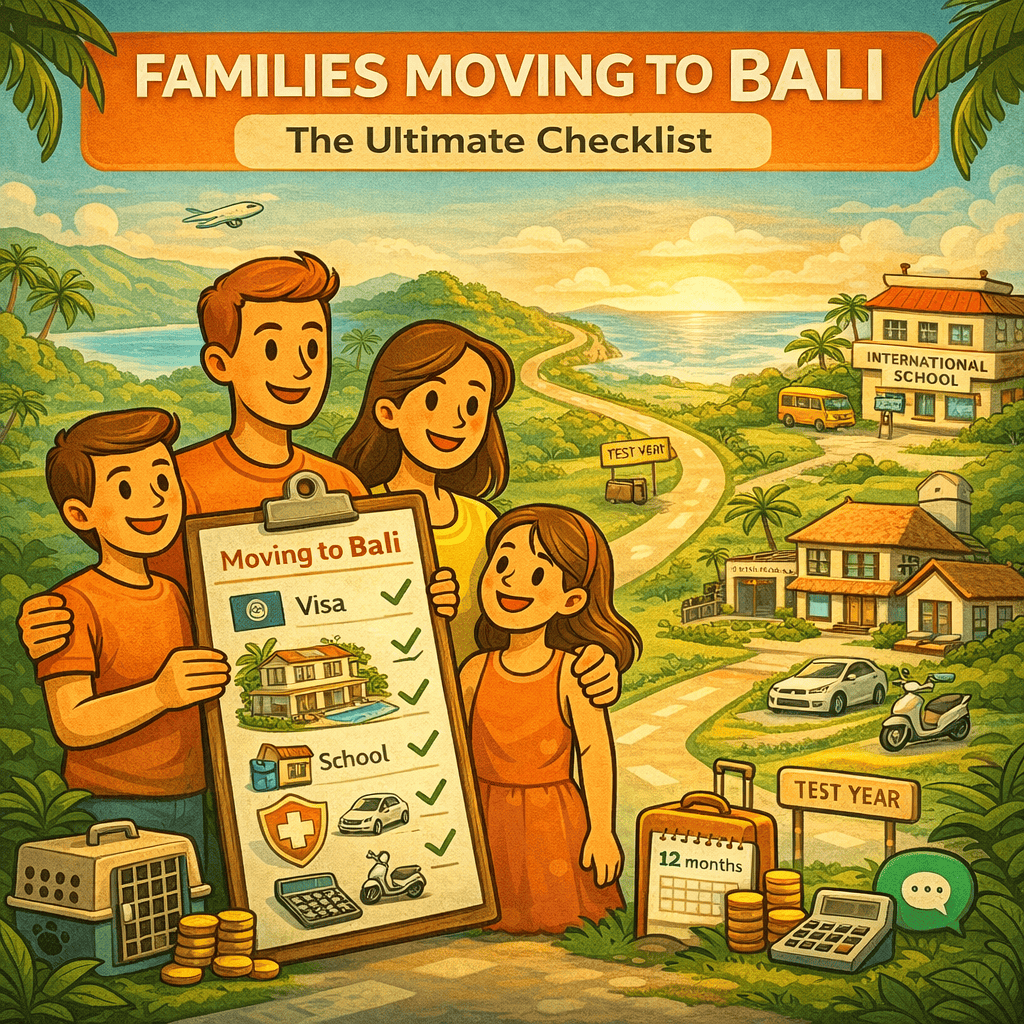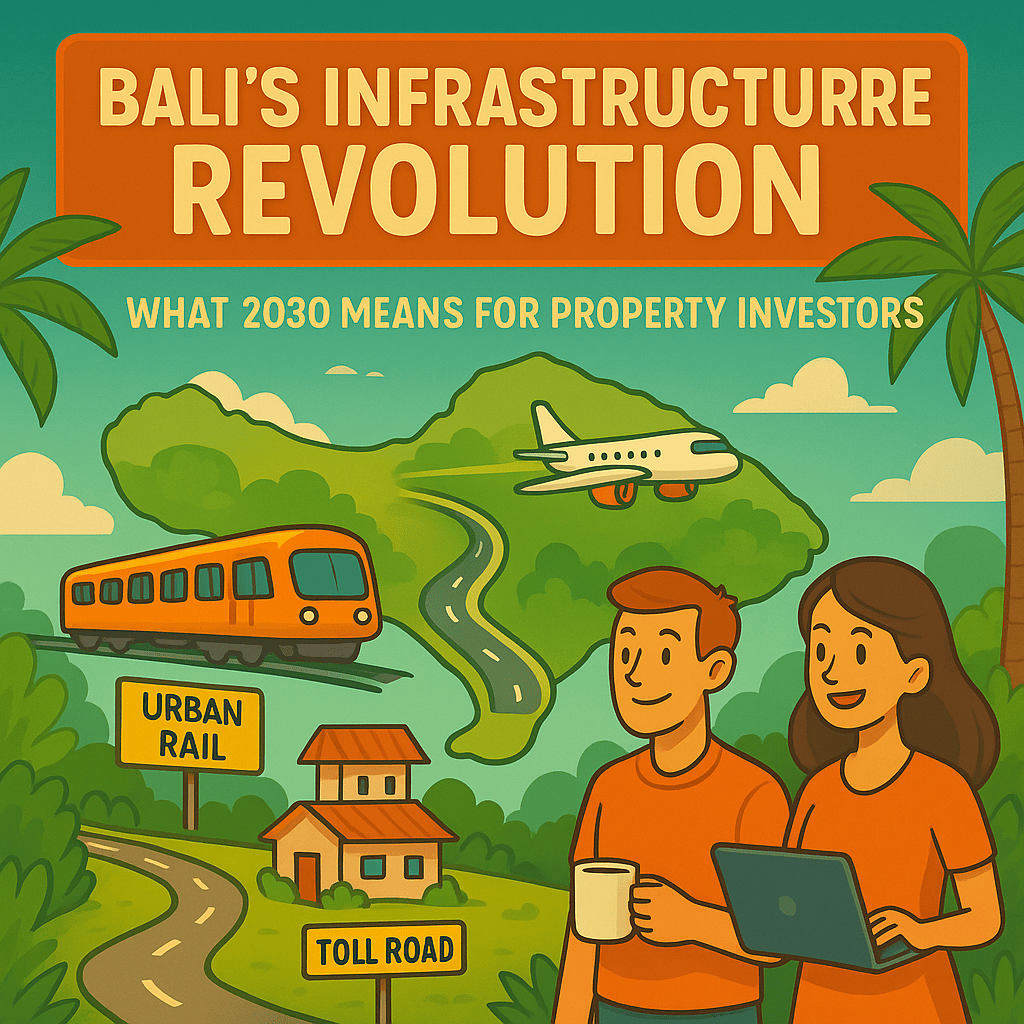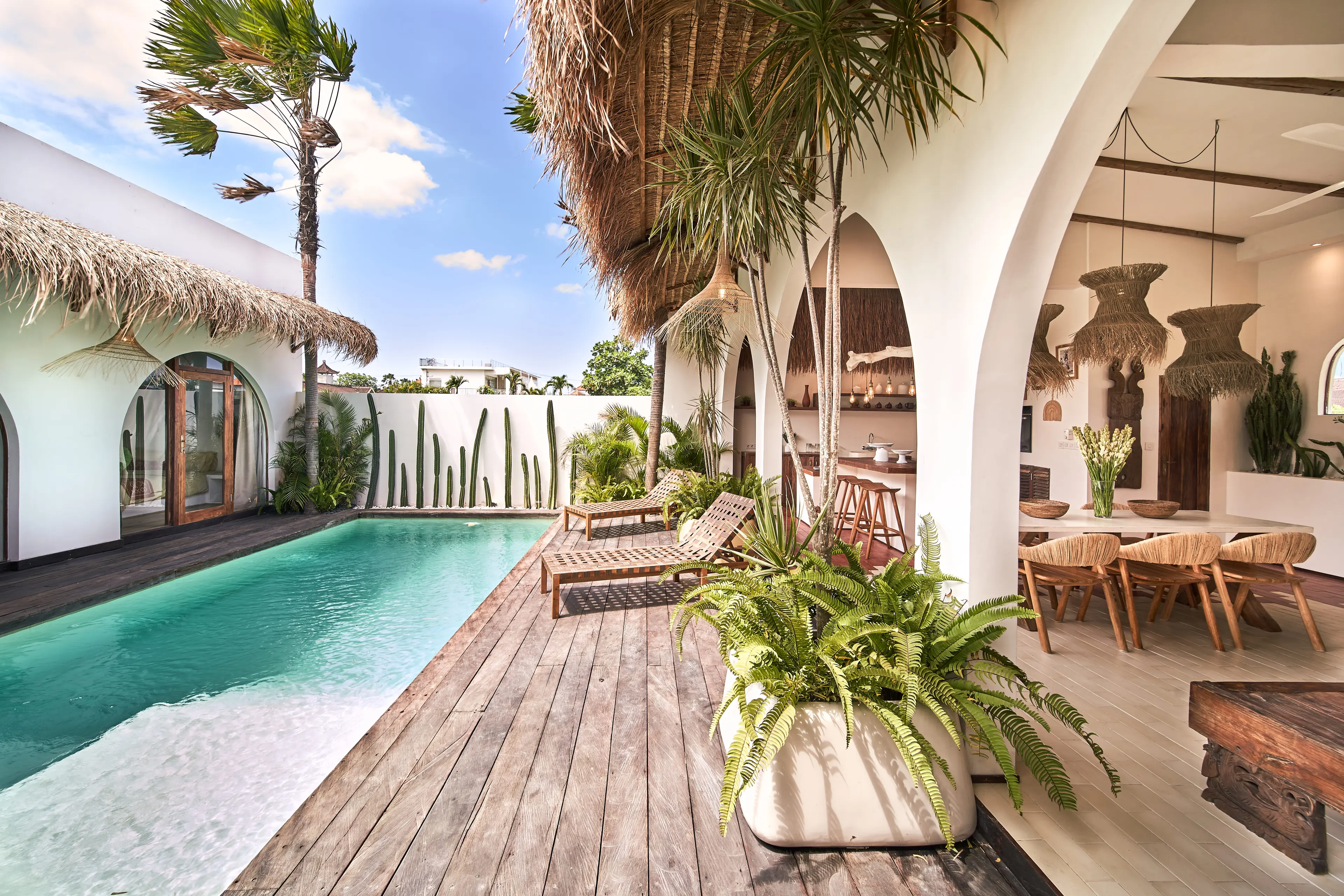Why Building Permits Matter More Than Ever in Bali
Bali's approach to building permits has transformed, and enforcement is tightening across the island. Recent high-profile cases prove the Indonesian government is serious about regulatory compliance.
In November 2025, authorities suspended the controversial glass-elevator project at Kelingking beach due to missing building and spatial permits. Earlier in 2025, the lifestyle complex ParQ Ubud was permanently closed because it lacked both a PBG (building approval) and an SLF (building-worthiness certificate), and was illegally built on protected agricultural land.
The message is clear: cutting corners can cost you everything. Proper permits protect your investment, allow utility connections, enable legal operations, and help you avoid devastating fines or demolition orders.
The End of IMB: Bali's New Two-Stage Permit System
Until February 2021, property developers relied on a single building permit called the IMB (Izin Mendirikan Bangunan). This has been replaced by a two-stage system: PBG (Persetujuan Bangunan Gedung) and SLF (Sertifikat Laik Fungsi).
Old IMBs issued before February 2, 2021 remain valid if construction started without major alterations. All new projects must follow the PBG and SLF framework, which separates approval to build (PBG) from certification that the finished building is safe and fit for use (SLF).
PBG: Your Building Approval
What Is PBG?
The PBG (Persetujuan Bangunan Gedung) is government approval required before you can legally construct, renovate, or expand any building in Bali. It validates that your design meets zoning, safety, structural, and environmental standards.
When You Need It
- New construction projects
- Renovations altering structure or facade
- Changes to building function
- Legalizing unpermitted existing buildings
The Process
- Prepare land documentation (title, tax receipts, zoning info, environmental permits)
- Get technical drawings signed by licensed professionals
- Submit online via SIMBG portal and pay levy
- Government reviews plans (may request revisions)
- Receive approval (typically 28 days, though delays occur)
Costs
- Residential projects: IDR 15–40 million (includes government levy, drawings, legal handling, environmental reports)
- Commercial projects: IDR 25–75 million (some regions charge ~IDR 350,000 per square meter)
Skip It at Your Peril
Building without a PBG risks construction halts, demolition orders, heavy fines, inability to connect utilities, and problems selling or insuring your property.
SLF: Certifying Your Building Is Safe
What Is SLF?
The SLF (Sertifikat Laik Fungsi) confirms your completed building is safe, structurally sound, and fit for its intended use. As Indoned Consultancy explains, it verifies your structure matches the approved PBG and meets all health, safety, and environmental standards.
When You Need It
An SLF is mandatory before you can legally use, rent, or insure your building. It applies to residential homes, commercial buildings, apartments, and renovated structures.
Validity
- Residential buildings: 20 years
- Commercial buildings: 5 years
Must be renewed when expired or if the building's function changes.
The Process
- Prepare as-built drawings, photos, and safety assessments
- Submit through SIMBG portal
- Government inspector conducts site visit
- Receive certificate if building passes inspection
Costs
- Residential: IDR 7–18 million
- Commercial: IDR 15–40 million
Pondok Wisata: The Essential License for Villa Rentals
What Is It?
A Pondok Wisata license permits short-term rentals of properties with up to five bedrooms. Properties exceeding this limit or offering hotel-level services need a TDUP (hotel license) instead.
Foreign Ownership Rules
Critical: Only Indonesian citizens or companies can hold this license. Foreign investors must either:
- Set up a PT PMA (foreign investment company) to legally operate
- Partner with an Indonesian citizen (not recommended due to legal risks)
Requirements
Beyond PBG and SLF, you'll need:
- Environmental permits (UKL-UPL or AMDAL)
- Business permit (SITU/HO)
- Company registration (NIB/KBLI)
- Local tax number (NPWPD)
- Guest reporting procedures
Zoning is Critical
Your property must be in a designated tourism or commercial zone. Operating in a residential zone is illegal and risks fines, closure, or deportation.
Costs and Timeline
- Fees: IDR 5–15 million plus consultant costs
- Processing time: 6 months to 1 year
- Validity: 5 years (must be renewed)
Ongoing Responsibilities
- Register guests with police within 24 hours
- Pay hotel/restaurant taxes regularly
- Renew license every five years
Other Essential Permits
SBKBG (Building Ownership Certificate) - Proof of building ownership, processed with SLF
RTB (Demolition Plan) - Required if demolishing an existing structure
Environmental Permits (AMDAL/UKL-UPL) - Mandatory for larger developments before PBG approval
NIB (Business ID Number) - Required through OSS system before obtaining PBG, SLF, or tourism licenses
TDUP (Tourism Business Registration) - Needed for accommodations exceeding 5 bedrooms or offering hotel-level amenities
Quick Reference: Permit Costs & Timeline
Costs vary by property size, location, and professional fees. Figures reflect 2025 estimates.
6 Essential Tips for Property Investors
1. Verify Land Status and Zoning First
Engage a notary or legal consultant to confirm the land is zoned for your intended use. Never buy property without valid PBG and SLF documentation.
2. Form the Correct Legal Entity
Foreign investors must operate through a PT PMA. Using nominees carries enormous legal risks.
3. Budget Realistically
Include all costs: government fees, professional drawings, environmental reports, legal services, taxes, and time delays. Don't assume you can build first and legalize later—ParQ Ubud learned this the hard way.
4. Hire Licensed Professionals
Work with certified architects and engineers for building plans, and engage legal consultants who specialize in Indonesian property law.
5. Start Early
PBG and SLF applications take months; Pondok Wisata licenses require 6–12 months. Begin permit applications well before construction or opening for business.
6. Maintain Compliance
Renew SLF and Pondok Wisata on time, update PBG for structural changes, register guests within 24 hours, pay taxes promptly, and maintain good relationships with your local Banjar.
Protect Your Investment: Get It Right from the Start
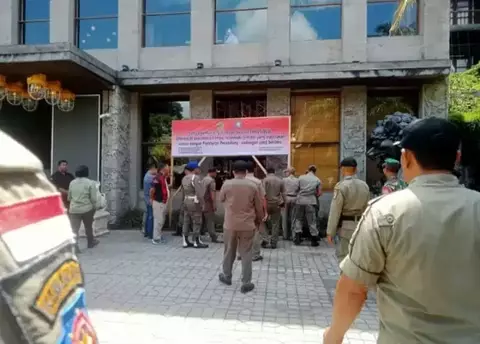
The Kelingking glass elevator and ParQ Ubud closures demonstrate what happens when developers ignore permit requirements. Understanding Bali's permit landscape—from PBG and SLF to Pondok Wisata licenses—is essential for protecting your investment and ensuring long-term success.
While the process may seem complex, taking proper steps now saves you from devastating fines, construction halts, or property closure later. Whether building your dream villa, developing a commercial project, or launching a vacation rental business, compliance isn't optional—it's the foundation of sustainable property investment in Bali.
Ready to Navigate Bali's Property Market with Confidence?
At Tipi Estate, we understand Bali's permit requirements can feel overwhelming, especially for international investors. Our team specializes in guiding expat families, global investors, and retirees through every step of the property journey—from finding the perfect location to ensuring full legal compliance.
We work with trusted legal consultants, licensed architects, and local authorities to help you navigate the PBG and SLF process, establish the correct legal entity (PT PMA), obtain Pondok Wisata or TDUP licenses, and maintain ongoing compliance with all permits and regulations.
Don't risk your investment by cutting corners. Contact Tipi Estate today to explore exclusive property listings and receive expert guidance on building or operating your Bali property legally and successfully.



